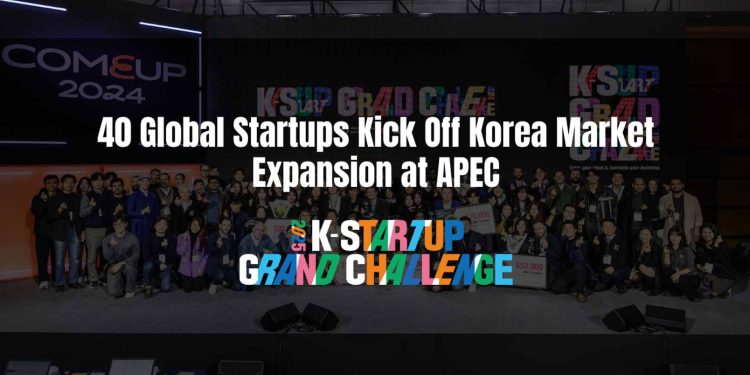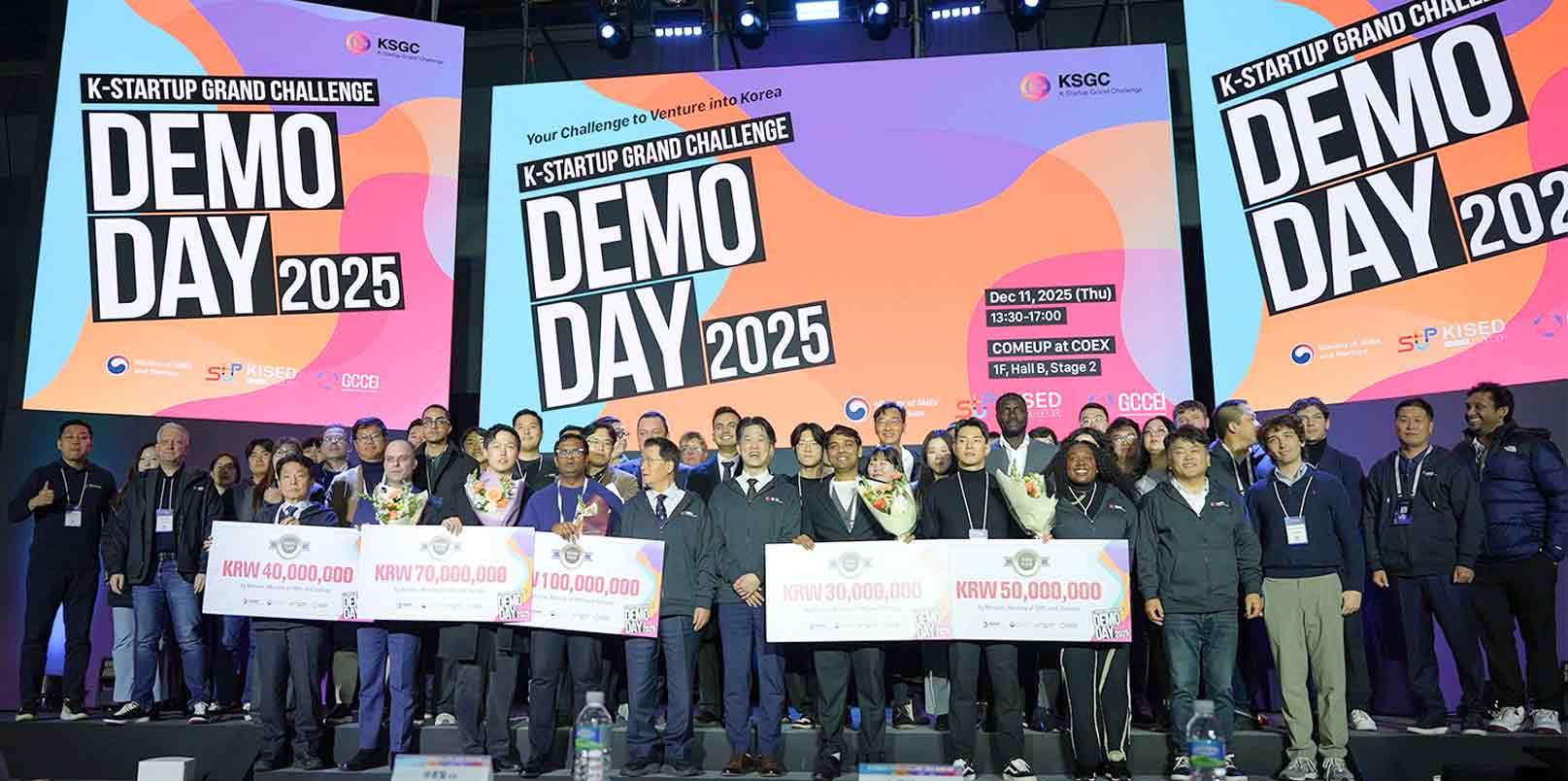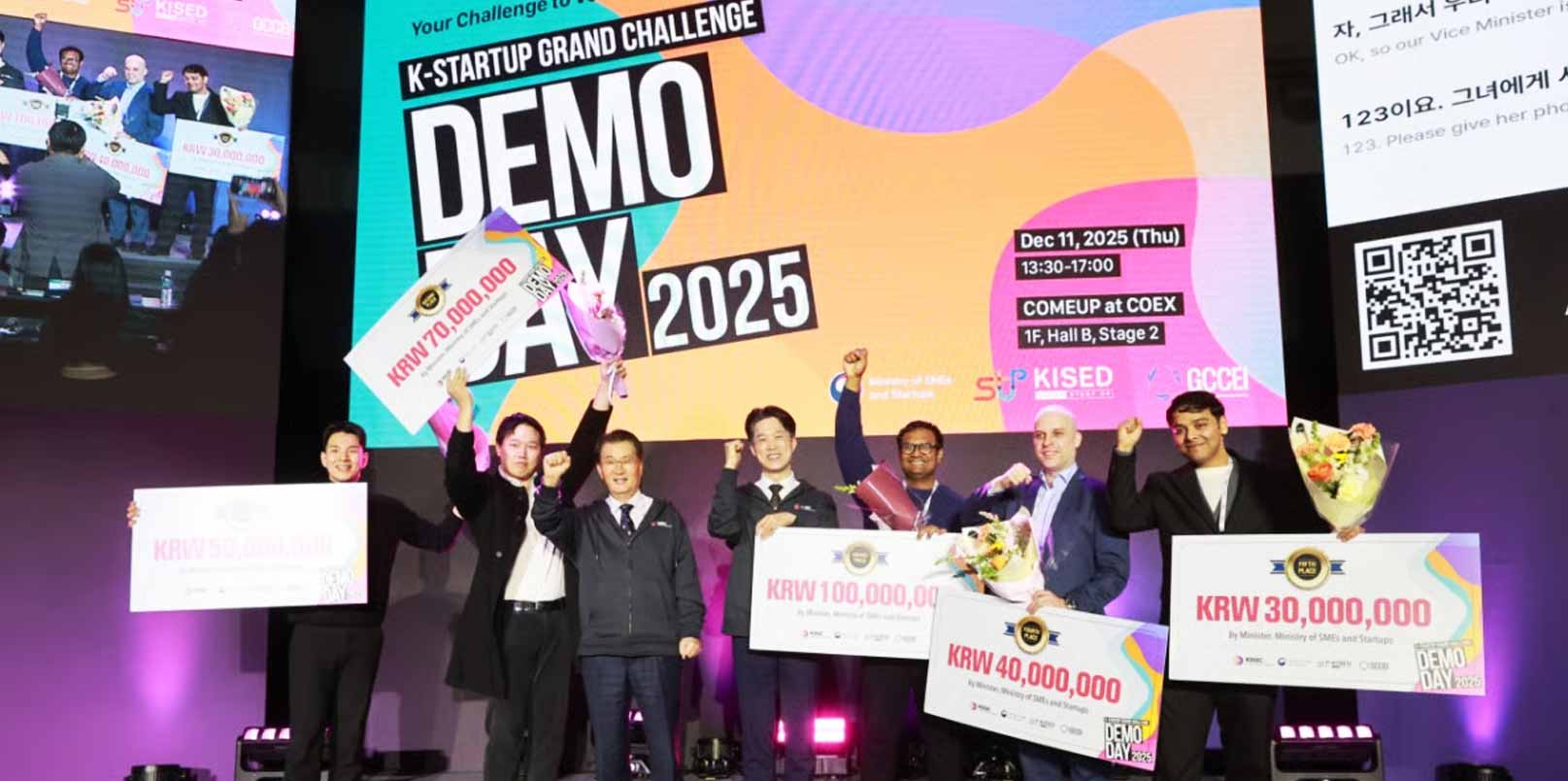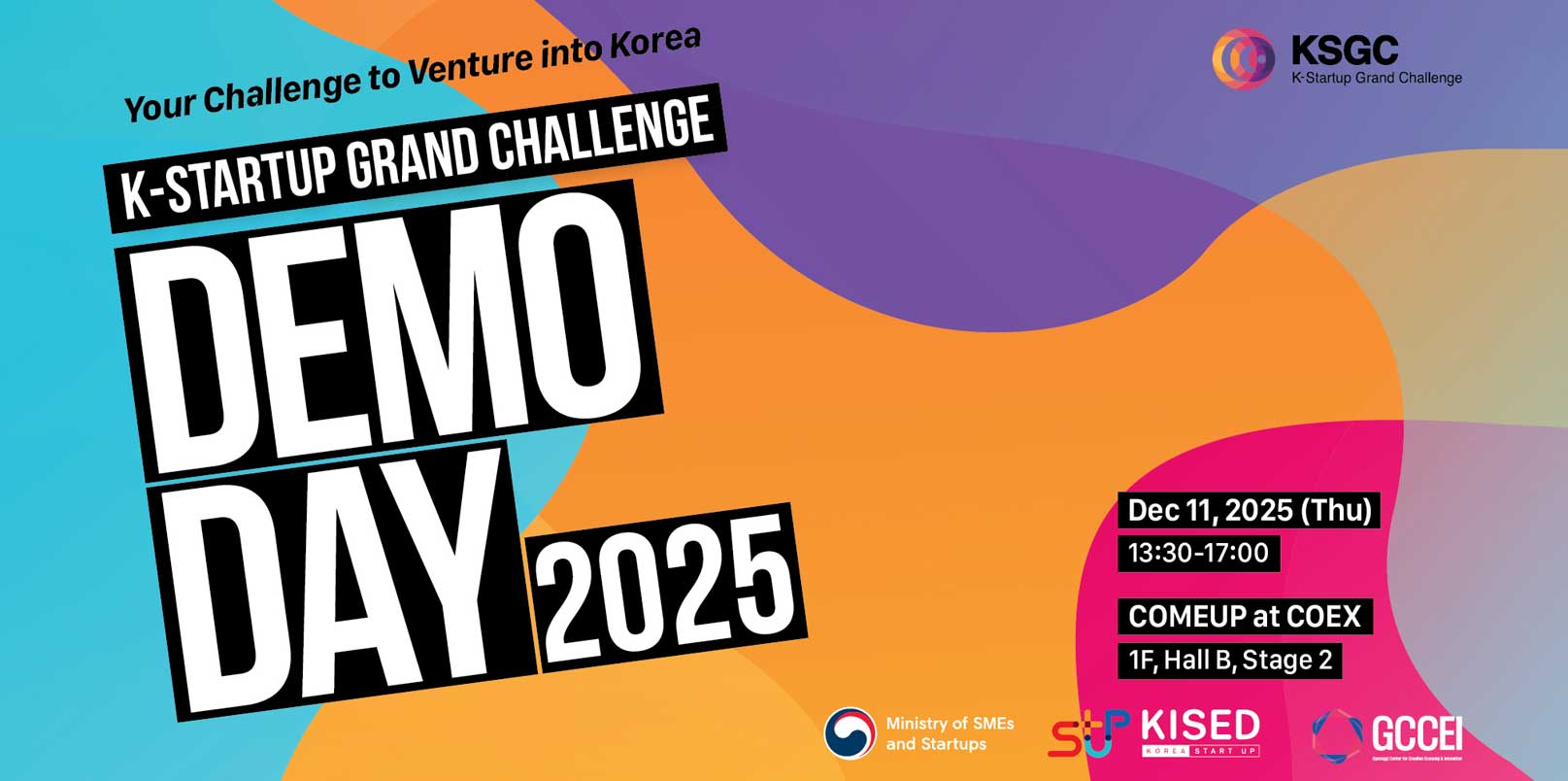With the launch of the five-day APEC SME Week 2025 in Jeju, South Korea, global startups are stepping onto the same stage as ministers and policymakers shaping the region’s economic future. The K-Startup Grand Challenge has narrowed its field to 40 international finalists, offering them not just acceleration in Korea but rare visibility within Asia-Pacific’s most influential SME and startup cooperation platform.
K-Startup Grand Challenge Phase 2: Global Startups Selected from 2,600 Applications
The K-Startup Grand Challenge (KSGC) 2025, Korea’s flagship global startup acceleration program, has named 40 international startups advancing to Phase-2, marking a key step in Korea’s broader strategy to integrate global founders into its startup ecosystem.
The announcement follows a rigorous evaluation in August, where 80 startups were assessed on their Korea Market Entry Plans during Phase-1, covering strategy depth, localization readiness, and growth feasibility.
From an initial pool of 2,600 applicants across 21 countries, the program now moves forward with a 1.5% overall selection rate, underscoring its position as one of the region’s most competitive accelerators.
Showcase at APEC SME Week in Jeju
The 40 finalists will officially begin Phase-2 in Jeju on September 2–3, with orientation and a global showcase aligned with APEC SME Week 2025, which runs from September 1–5 at ICC Jeju.
As Korea hosts 5,000 delegates from 21 APEC economies for the 31st APEC SME Ministerial and linked events, the KSGC showcase is part of “Global Startup Day in Jeju”—a branded program that also includes the Challenge! K-Startup Opening Ceremony and the Global Venture Investment Forum.
Positioned within the region’s largest SME and startup policy gathering, the showcase provides startups not only visibility before policymakers and investors but also access to one of Asia’s most influential SME cooperation platforms.
Startup Programs for K-Startup Grand Challenge Phase 2
In Phase-2, the 40 selected startups receive:
- Equity-free financial support, incorporation assistance, and visa support.
- Acceleration and mentoring from the Korea Institute of Startup & Entrepreneurship Development (KISED) and the Gyeonggi Center for Creative Economy & Innovation (GCCEI).
- Business matching opportunities with Korean conglomerates and investors.
The program’s structure is designed to help startups both localize their business models in Korea and leverage the market as a springboard for Asia-Pacific expansion.
Paul Kwon, Global Business Team Lead at GCCEI stated,
“These 40 startups impressed us with the depth of their market analysis and the specificity of their localization strategies for Korea. Through Phase-2, we will provide intensive acceleration support to help them establish successfully in Korea and scale globally.”
APEC SME Week 2025: Broader Policy Context
The APEC SME Week 2025 program, of which the KSGC showcase is a key side event, reflects Korea’s ambition to link domestic startup policies with international cooperation.
Running under the theme “MSMEs as Engines of Sustainable and Inclusive Growth”, the five-day ministerial includes:
- APEC SME Innovation Forum (Sept. 1), focusing on digital transformation and finance.
- ASEIC Global Eco-Innovation Forum (Sept. 2), exploring green growth cooperation.
- APEC SME Working Group Meetings (Sept. 3–4), addressing policy responses to global SME challenges.
- APEC SME Ministerial Meeting (Sept. 5), where ministers will adopt a joint declaration.
With nearly 5,000 attendees, Jeju has become a regional focal point for advancing SME innovation, climate resilience, and startup ecosystem linkages.
Korea’s Dual Strategy: Host and Accelerator
By bringing the KSGC showcase into the heart of APEC SME Week, Korea is signaling a dual strategy.
On one side, it is exercising policy leadership by hosting ministers and officials from 21 economies to shape the regional agenda for SMEs and startups. At the same time, it is also spotlighting global founders within its own acceleration programs, ensuring that international entrepreneurs are not just observers but active participants in Korea’s innovation ecosystem.
This approach highlights how Korea seeks to evolve from a startup-friendly market into a global hub for scale-ups, where both domestic and international entrepreneurs can connect to policy, capital, and regional networks.
Korea as a Bridge for Global Startups
Beyond this acceleration program, the 40 startups selected for K-Startup Grand Challenge Phase 2 will also step into the spotlight of APEC SME Week 2025, one of the Asia-Pacific’s most influential multilateral platforms for SMEs and startups. Their presence signals how global founders can integrate into Korea’s innovation ecosystem while connecting with regional investors, corporates, and policymakers.
Ultimately embedding Korea’s flagship accelerator into APEC’s agenda underscores the country’s deliberate strategy: to position Jeju, and the nation more broadly, as a bridge between international founders and Asia-Pacific growth markets. It is both a showcase of policy innovation and a test of Korea’s readiness to act as a scaling hub for global entrepreneurship.






